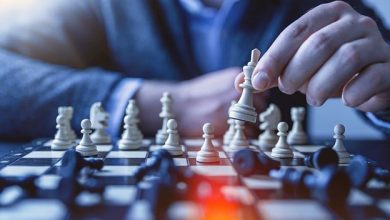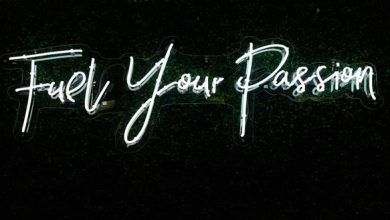Improve Your Skills Faster by Using The REPS Method
Learn a new skill faster
How to Learn a New Skill With The REPS Method
Aren’t you wishing sometimes you’d been born with a special ability?… I’m sure you do or at least you were at some point in your life and it’s not your fault.
“We are often taught that talent begins with genetic gifts–that the talented are able to effortlessly perform feats the rest of us can only dream about.
This is false. Talent begins with brief, powerful encounters that spark motivation by linking your identity to a high-performing person or group.
This is called ignition, and it consists of a tiny, world-shifting thought lighting up your unconscious mind:
“I could be them.”
That’s the premise of Daniel Coyle’s The Little Book of Talent, a cool book chock-full of 52 easy, tried-and-true techniques for improving almost any ability.
I’m sure if you get to read you’ll definitely think It’s an excellent guide and you’ll say, “Oh, wow,” several times in just a few minutes because of the things you never thought about and now realize.
Here’s a guide and an explanation of what are these techniques and what they mean each, if you’d like to strengthen at anything and at everything you should follow this procedure and I guarantee you results, really.
Make sure to use a procedure that follows the R.E.P.S. gauge for each thing you’d like to learn or complete:
R: Reaching and Repeating
E: Engagement
P: Purposefulness
S: Strong, Speedy Feedback
R: Reaching and Repeating
Practicing can push you to the limit of your skills, in other words, you must repeatedly achieve and repeat. Assume you’re in charge of a training session.
Do you think you should:
- Approach one person and ask a question; have him or her respond, or…
- Ask the question first, then select someone at random to answer it (and maybe turn the exercise into a game)
The second strategy is the best because everyone has to reach out at all times—even though people aren’t called upon they will see it as an opportunity to prove their “worth” and skills, plus, you’ll get many great answers and you’ll get the chance to choose the best one and get to practice your social skills if that’s your goal!
Also, that’s cool because for example I know I don’t have to answer the question if you call on John from accounting for example; I can sit back, check my email, and wait until you call on me to answer it and give you my greatest feedback or point you out to the best one people gave you.
E: Engagement
Practice should hold your attention and make you feel personally invested in achieving a goal.
Assume you’re preparing a presentation and need to perfect your slide transitions.
Do you think you should:
- Go over the whole presentation ten times, or…
- Give three presentations in a row and try to hit each transition exactly, without making any mistakes?
Working your way through your presentation trying to be perfect 10 times in a row will feel like death; attempting to be perfect three times in a row will turn the exercise into a game you like which in turn stimulates you and makes things easier.
Make sure the result of each practice session is something you care about, because if you do, you’ll work harder and be more involved, and you’ll progress faster.
P: Purposefulness
Practice must be linked to the ability you want to improve (this may seem self-evident, but what we practice often has little to do with what we need to accomplish).
When you have to testify in front of a group, say you are scared and intimidated.
Do you think you should:
- Rehearse alone at home until you have a firm grasp on your stuff, or…
- Do you have any experience speaking to small groups of people in less formal contexts, such as a meeting?
Although solo rehearsing is beneficial the only way to perform well in front of an audience is to practice speaking in front of people and there’s no other way to prepare for the nerves you’ll feel when every eye in the room is on you, no matter how much solo practice or other things you may do just to avoid being exposed.
Once you expose yourself in front of these situations or similar ones you’ll get what I mean and you’ll start to see by yourself the many benefits that facing challenges has, though, meditation has been proved to work since you’ll be more in control of your body and even more aware of the environment you’re facing.
S: Strong, Consistent Feedback
Practice can provide a steady stream of accurate information about performance if you take attention.
Let’s pretend you’re preparing for a certification exam and you bought a practice test guide.
Do you think you should:
- Take the whole test and check your results the next day, or…
- Finish a section and grade your answers right away to see where you got wrong (and right)?
The right answer would be: break up the test into parts and check your results as soon as possible because you’re in the zone, immediate feedback is the best feedback because, in that way, you’ll be able to connect the dots easily and faster.
Waiting even one day for feedback creates a mental barrier and a lack of engagement that is difficult to overcome later on, that’s why you gotta check your results asap!
Make sure to leave a comment below or even to send me a private message about the post as most of you usually do, cheers!
Check My Private Library For Personal Development
Read More About Personal Development
…
Would You Like To Be Able To Help People By Learning New Skills?…
Below Are The Easiest And The Most Effective Ways To Make It Happen!
- Make An Income By Teaching And Traveling The World
- Become A Coach And Start Earning By Helping Other People
- Master Your Profession, Your Passion, Or Something New
- Be Part Of The World’s Leading Experts And Find Success
Other Important Resources
- Improve Your Life Today (Book)
- IG: Personal / Eagle Beagle Spirit
- Visit Our Shop or Become An Ambassador
Always fighting for your rights and your daily improvement,
Juan Plamen




